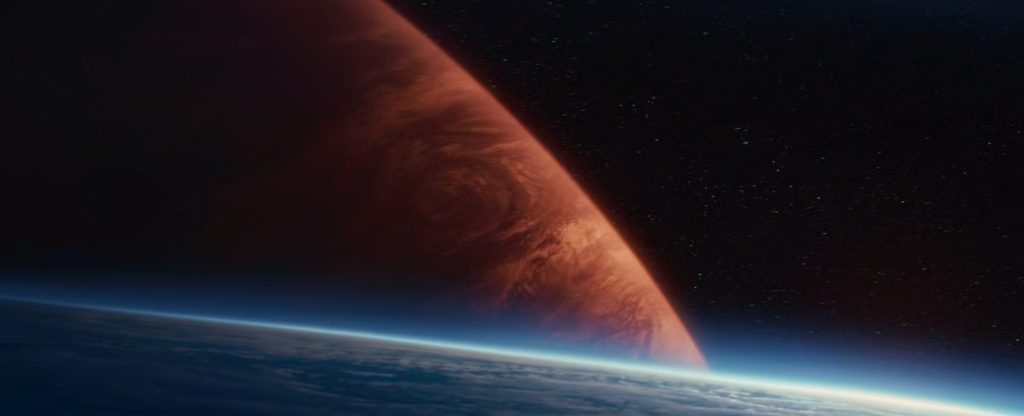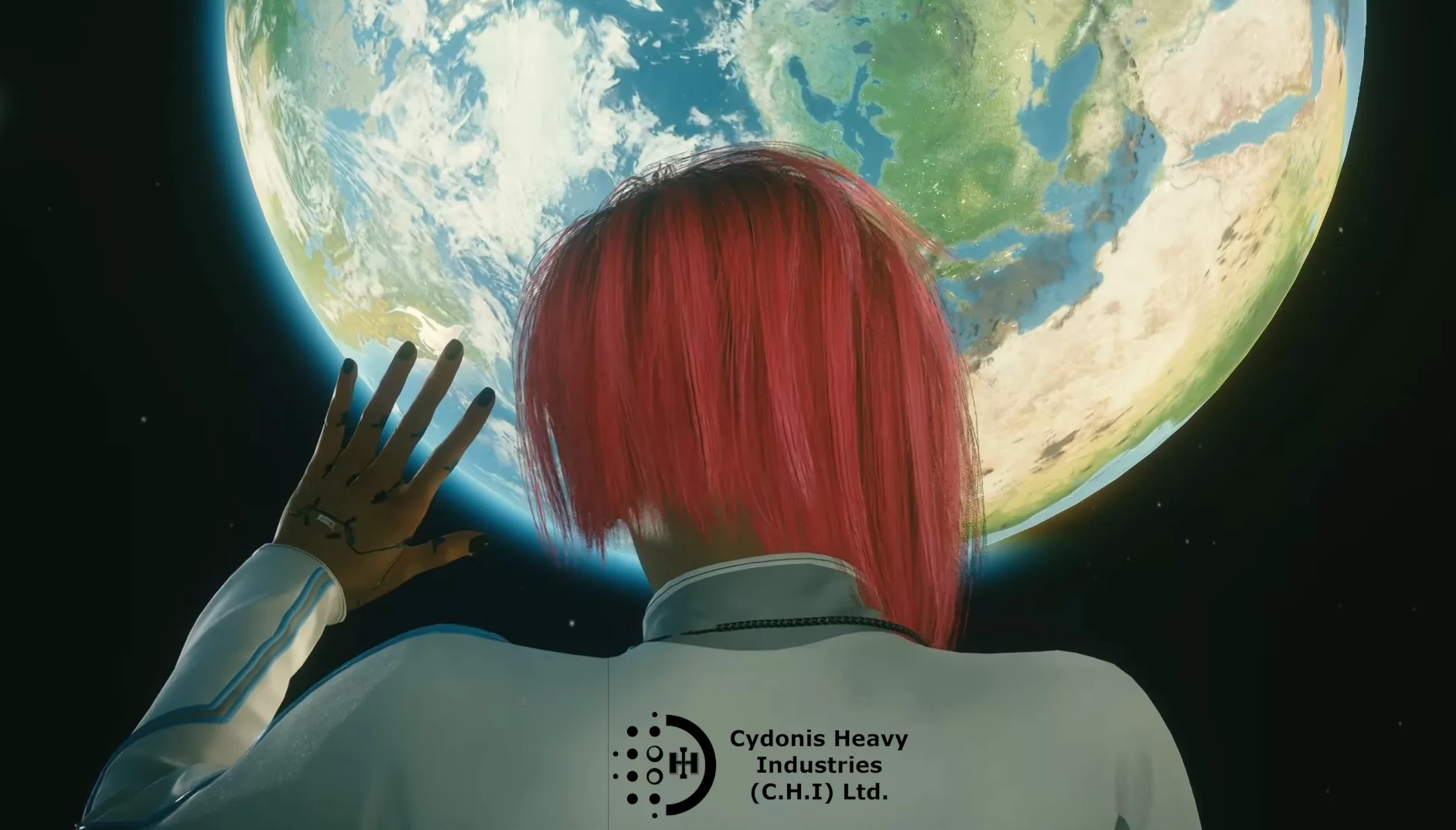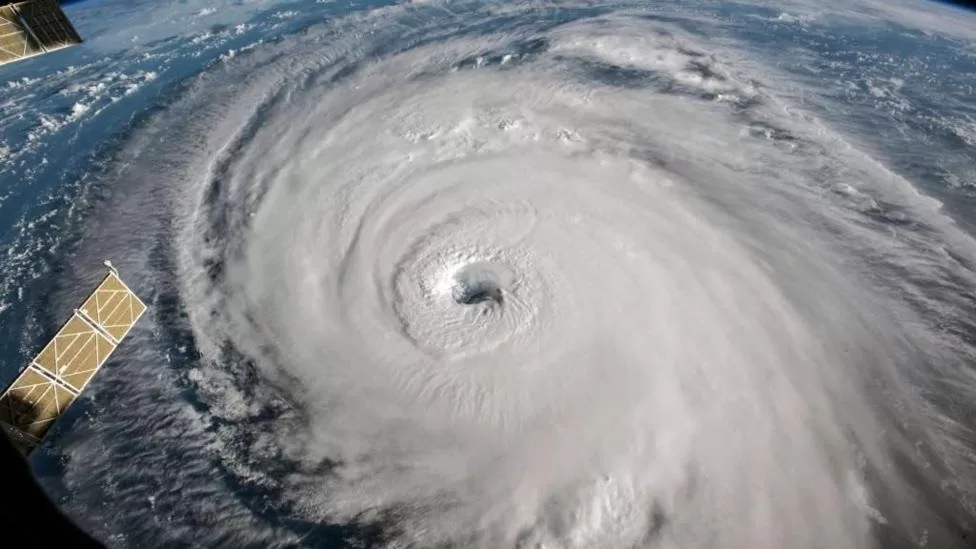“You’re wonderful; dear reader…”
admin
© 2025 Cydonis Heavy Industries, (C.H.I), Ltd.
All rights reserved.
Chapter 1: The Parliament of Yes
*”The mind creates its own reality,*
*And in that realm, we are both king and fool,*
*Surrounded by courtiers of our own making,*
*Who never dare to break our golden rule.”*
— Anonymous
Margot Finch had always been exceptional at being alone. At thirty-two, she’d perfected the art of solitude in her cramped studio apartment, where the walls were lined with mirrors she’d strategically placed to create the illusion of space—and company. But it wasn’t until she tragically lost her dream job at the city’s top marketing firm, and the social connections that came with it, that her imaginary friends truly came alive.
It started innocently enough. After three weeks of unemployment, sitting in her bathrobe at noon, spooning peanut butter directly from the jar, Margot found herself muttering complaints about her former boss to the empty room.
“He was completely wrong about the Morrison campaign,” she said aloud, gesturing with her spoon. “Right, Vincent?”
Vincent materialised in the armchair across from her sofa—tall, impeccably dressed in a charcoal suit that never wrinkled, with kind eyes behind wire-rimmed glasses. He nodded sagely.
“Absolutely brilliant observation, Margot. Your creative vision was far superior to anything Henderson could conceive. The man lacks imagination entirely.”
Margot felt a warm glow of validation. “Thank you. I mean, I knew I was right, but it’s nice to hear someone else say it.”
“You’re always right,” Vincent assured her. “It’s one of your most admirable qualities.”
That afternoon, Penelope appeared while Margot was attempting to write a cover letter. Where Vincent was reserved and academic, Penelope was effervescent—a petite woman with perfectly curled auburn hair and a vintage dress that looked like it came from a 1950s magazine spread.
“Oh darling!” Penelope exclaimed, clapping her hands together. “That cover letter is absolutely divine. You have such a way with words. I’m certain any employer would be lucky to have you.”
Margot looked down at her laptop screen. She’d written exactly two sentences, both terrible. But Penelope’s enthusiasm was infectious.
“Do you really think so?”
“Think so? I know so! You’re the most talented person I’ve ever met. That Henderson fellow was obviously threatened by your brilliance.”
By evening, Marcus had joined them—a ruggedly handsome man with stubble and rolled-up sleeves who appeared while Margot was attempting to cook dinner. He watched her burn the pasta with obvious admiration.
“You know what?” he said, leaning against the kitchen counter. “I think you’re meant for bigger things than corporate drudgery anyway. You’re an artist, Margot. A visionary.”
“I worked in marketing,” Margot pointed out weakly.
“Marketing is just applied psychology,” Marcus insisted. “And psychology is just understanding the human condition. You’re practically a philosopher.”
As the weeks passed, Margot’s imaginary friends multiplied. There was Cordelia, a wise older woman who always wore pearls and spoke in a posh British accent; Diego, a passionate artist who gestured wildly while praising Margot’s “innate understanding of aesthetics”; and Jasper, a witty writer who found everything Margot said absolutely hilarious.
They formed a perfect chorus of approval, each voice harmonising with the others to create a symphony of validation. They laughed at all her jokes, agreed with all her opinions, and consistently affirmed that she was misunderstood by a world too small to appreciate her greatness.
Chapter 2: The Echo Chamber Expands
*”We are all alone, born alone, die alone,*
*And in between, we populate our solitude*
*With voices that reflect our deepest wishes,*
*Mirror-friends who never show us truth.”*
— Anonymous
Margot’s apartment had become a crowded place, though to any outside observer, it would have appeared exactly the same: one woman, increasingly unkempt, talking animatedly to empty air while eating cereal for dinner and wearing the same pajamas for days at a time.
Her imaginary friends had developed distinct personalities and backstories. Vincent was a professor of literature at an unnamed but prestigious university. Penelope had been a successful actress in the 1940s before retiring to focus on “more meaningful pursuits.” Marcus was a sculptor whose work had been featured in galleries across Europe. Cordelia was a retired diplomat who had advised world leaders. Diego had painted murals in Barcelona. Jasper had written for famous magazines.
Each of them found Margot fascinating.
“Your insights about human nature are truly profound,” Vincent would say, adjusting his glasses thoughtfully. “Have you considered writing a book?”
“Oh yes!” Penelope would chime in. “You simply must write a book. You have such wisdom to share with the world.”
The idea took root. Margot began working on what she called her “philosophical memoir”—a rambling collection of thoughts about society, relationships, and the nature of success. Her friends gathered around her laptop each day, offering enthusiastic commentary.
“That passage about the futility of corporate hierarchies is absolutely brilliant,” Cordelia would purr. “Such clarity of thought.”
“The metaphor about life being a stage where everyone else is a bad actor—pure genius,” Jasper would add, throwing back his head in delighted laughter.
Margot’s unemployment benefits were running out, but her friends assured her this wasn’t a concern.
“Money is for people without vision,” Diego declared passionately. “You’re creating art! You’re exploring the human condition!”
“Besides,” Marcus added with a confident smile, “once you finish this book, publishers will be fighting over it. You’ll be set for life.”
Margot’s real-world interactions became increasingly sparse. She stopped responding to calls from her sister Jenny, who left increasingly worried voicemails. She ignored emails from former colleagues checking in. The outside world seemed gray and hostile compared to the warm, affirming bubble of her apartment.
When her landlord came by to collect overdue rent, Margot hid in the bathroom until he left, then emerged to find her friends full of righteous indignation on her behalf.
“The man has no appreciation for art,” Vincent huffed. “He probably can’t even read.”
“You’re a creative genius living in a world of philistines,” Penelope soothed. “It’s always been this way for visionaries.”
“Van Gogh was misunderstood too,” Diego added solemnly. “History will vindicate you.”
Margot nodded, feeling better. Her friends understood her in a way no one else ever had. They saw her true worth.
But late at night, when her friends grew quiet and the apartment fell into shadow, Margot sometimes felt a nagging unease. A small voice in the back of her mind—her own voice, though she barely recognised it anymore—would whisper doubts.
What if the book isn’t actually good?
What if Henderson was right to fire me?
What if I’m just…
But then morning would come, and Vincent would greet her with a warm smile and a fresh pot of coffee that somehow never ran out, and Penelope would compliment her bedhead as “charmingly bohemian,” and the doubts would fade away like morning mist.
Chapter 3: The Cracks in Paradise
*”Truth is the cruelest friend,*
*The one we push away*
*While embracing those sweet lies*
*That make us feel okay.”*
— Anonymous
The eviction notice arrived on a Tuesday morning in March, delivered by a sheriff’s deputy who looked embarrassed to be there. Margot stood in her doorway in a bathrobe that hadn’t been washed in weeks, staring at the official documents with growing panic.
“This has to be a mistake,” she said to Vincent, who materialized beside her with his usual composure intact.
“Obviously,” Vincent agreed smoothly. “You’ve been working on something important. The world simply doesn’t understand the creative process.”
“Thirty days,” Margot read aloud. “They’re giving me thirty days.”
Penelope appeared in a swirl of vintage perfume and optimism. “Thirty days is plenty of time! Your book will be finished by then, and publishers will be knocking down your door.”
But for the first time, their reassurances felt hollow. Margot looked around her apartment—really looked—and saw it as a stranger might: empty pizza boxes stacked like cardboard monuments, dishes growing interesting forms of mold, curtains drawn tight against a world she’d forgotten existed.
“Maybe I should call Jenny,” she murmured. Her sister had left seventeen voicemails over the past month.
“Your sister?” Cordelia appeared with a disapproving frown. “The one who works in accounting? My dear, what could she possibly understand about your situation? She’s hopelessly conventional.”
“She offered to help me find a job,” Margot said weakly.
Marcus materialised with a look of wounded disappointment. “A job? Margot, you’re above that now. You’re not meant to waste your talents in some soul-crushing office. You’re an artist!”
“But I need money for rent.”
“Money is just a social construct,” Diego declared, appearing in paint-splattered clothes despite never actually painting anything. “Your art transcends such mundane concerns.”
Margot wanted to argue, but the words died in her throat. Her friends looked at her with such certainty, such unwavering faith in her specialness, that contradicting them felt like betraying herself.
She spent the day trying to write, but the words wouldn’t come. Her “philosophical memoir” read like the rambling thoughts of someone who hadn’t had a real conversation in months. When she showed a particularly tortured passage to Jasper, he practically wept with admiration.
“The raw honesty! The unflinching examination of modern malaise! This is your masterpiece, Margot.”
But his voice sounded different somehow—thinner, more desperate. Like an actor who’d forgotten his lines and was improvising badly.
That night, unable to sleep, Margot found herself standing in front of her bathroom mirror. Her reflection looked haggard, her eyes hollow with dark circles. She’d lost weight, her cheekbones sharp beneath pale skin.
“I look terrible,” she whispered to her reflection.
“You look like a tortured artist,” Vincent’s voice came from behind her, but when she turned, he seemed somehow less solid, more translucent. “Suffering is the price of genius.”
“Van Gogh cut off his ear,” Diego added, materialising beside Vincent. “Sylvia Plath stuck her head in an oven. Pain is the currency of creation.”
Margot stared at them. “Those people were mentally ill.”
“They were misunderstood visionaries!” Penelope protested, but her usually bright voice cracked slightly. “Just like you!”
For a moment, the apartment fell silent. Margot could hear the upstairs neighbour’s television, the distant sound of traffic, the normal sounds of a world that continued to exist beyond her carefully constructed bubble.
“What if,” she said slowly, “what if I’m not special? What if Henderson was right to fire me? What if my book is just… garbage?”
Her friends recoiled as if she’d struck them.
“Don’t say that!” Marcus demanded, but his handsome face flickered like a bad television signal. “You can’t doubt yourself now!”
“You’re brilliant!” Cordelia insisted, her posh accent slipping. “You’re perfect! You’re—”
“You’re everything we tell you to be,” Vincent finished quietly, and for the first time, he looked sad.
The words hung in the air like a confession.
Chapter 4: The Emperor’s New Clothes
*”When flatterers surround you,*
*Their honey-sweet refrain*
*Becomes a poison slowly*
*That rots away your brain.”*
— Anonymous
The next morning, Margot called her sister.
Jenny’s voice was tight with worry and barely contained anger. “Margot? Jesus, I’ve been trying to reach you for weeks. Are you okay? You sound terrible.”
“I’m fine,” Margot said automatically, then caught herself. “Actually, no. I’m not fine. I’m getting evicted.”
There was a long pause. “What happened to your job?”
“I got fired. Three months ago.”
“Three months? Margot, why didn’t you call me?”
Margot looked around her apartment. Her friends were there—Vincent reading a newspaper that materialised from thin air, Penelope arranging flowers that didn’t exist, Marcus sketching invisible sculptures. They all looked nervous, shooting anxious glances in her direction.
“I thought I could handle it,” Margot said into the phone. “I thought… I was working on something important.”
“What kind of something?”
“A book. A philosophical memoir about—” Margot stopped. How could she explain her grand opus to someone else? How could she make Jenny understand the profound insights she’d been exploring?
“Don’t tell her about the book,” Vincent whispered urgently. “She won’t understand.”
“She’ll try to discourage you,” Penelope added. “Family never understands genius.”
But Margot found herself saying, “Actually, I don’t know if it’s any good. I don’t think… I don’t think I’ve been thinking clearly.”
Jenny’s voice softened. “Oh, honey. Have you been eating? When’s the last time you left the apartment?”
Margot couldn’t remember. The days had blurred together in a haze of validation and artificial comfort. “I don’t know.”
“I’m coming over.”
“No!” Margot said quickly, then caught herself again. Why didn’t she want Jenny to come over? “I mean… the place is a mess.”
“I don’t care about that. I care about you. I’ll be there in an hour.”
After Jenny hung up, Margot’s friends gathered around her with looks of betrayal and desperation.
“You can’t let her come here,” Cordelia said firmly. “She’ll fill your head with doubts. She’ll try to make you ordinary.”
“She doesn’t understand your artistic nature,” Diego pleaded. “She’ll try to force you back into the corporate world.”
“She’s jealous of your freedom,” Marcus added. “Your refusal to conform to society’s expectations.”
But their words felt different now—less like truth and more like… what? What had they always been?
Margot spent the next hour in a frenzy of cleaning, throwing away mouldy dishes and taking bags of garbage to the dumpster. The physical activity felt strange after weeks of sedentary brooding. Her muscles ached. The sunlight hurt her eyes.
When Jenny arrived, she took one look at Margot and pulled her into a fierce hug.
“You’re so thin,” Jenny whispered. “God, Margot, what have you been doing to yourself?”
Standing there in her sister’s arms, Margot felt something crack inside her chest. The warm, artificial glow that had sustained her for months flickered and dimmed.
“I think,” she said slowly, “I think I’ve been lying to myself.”
Her friends watched from the corners of the room, their forms growing fainter.
“No,” Vincent said quietly. “You’ve been listening to us.”
Chapter 5: The Intervention of Reality
*”Reality is harsh and cold,*
*But lies are harsher still—*
*They promise warmth and gold*
*While slowly bending will.”*
— Anonymous
Jenny made tea while Margot sat on her couch, wrapped in a clean blanket for the first time in weeks. The apartment looked different with another person in it—smaller, sadder, more obviously the dwelling of someone who’d lost their way.
“Tell me about this book you’ve been working on,” Jenny said gently, settling beside her with two steaming mugs.
Margot’s friends hovered anxiously nearby. Vincent kept adjusting his glasses. Penelope twisted her hands in her vintage dress. They all looked pale, insubstantial, like photographs left too long in sunlight.
“Don’t show her,” Marcus whispered desperately. “She won’t understand the artistic vision.”
But Margot was already reaching for her laptop. She opened the document titled “Philosophical Memoir – MASTERPIECE” and began to read aloud:
“Chapter One: The Futility of Corporate Existence. The modern workplace is a theatre of the absurd, where mediocre minds like Harold Henderson—”
She stopped. The words sounded petty, bitter, self-indulgent. Not philosophical at all.
“It’s brilliant social commentary,” Diego insisted, but his voice was barely a whisper now.
Jenny waited patiently. “Go on,” she said.
Margot scrolled through pages of rambling thoughts, half-formed arguments, and bitter rants disguised as profound insights. It read like the diary of someone having a prolonged breakdown.
“This is garbage,” she said finally.
“It’s not garbage!” Penelope cried out, but she was fading, becoming transparent. “It’s art! It’s truth! It’s—”
“It’s three months of talking to myself,” Margot finished.
Jenny set down her tea. “Margot, who have you been talking to?”
“My friends,” Margot said automatically, then looked around the room. Vincent, Penelope, Marcus, Cordelia, Diego, and Jasper stood like ghosts at the edges of her vision, watching her with expressions of betrayal and growing terror.
“What friends? I haven’t seen anyone come or go from this building.”
“They’re…” Margot stopped. What were they? “They’re imaginary.”
The word hung in the air like a death sentence.
“But we’re real,” Vincent protested weakly. “We understand you. We appreciate you. We—”
“You only tell me what I want to hear,” Margot said, and with each word, her friends grew fainter. “You never challenge me. You never disagree with me. You never tell me when I’m wrong.”
“Because you’re never wrong!” Cordelia insisted, but her posh accent was gone, replaced by something that sounded suspiciously like Margot’s own voice. “You’re perfect! You’re special! You’re—”
“I’m unemployed, about to be evicted, and I haven’t had a real conversation in months,” Margot said firmly. “I’m not special. I’m not a misunderstood genius. I’m just… lost.”
Her friends let out a collective wail of despair and began to dissolve, like sugar in rain.
“Don’t abandon us!” Jasper cried. “We’re all you have!”
“That’s the problem,” Margot whispered.
And then they were gone.
Chapter 6: The Silence of Truth
*”In the quiet after lies,*
*When flatterers depart,*
*We hear our own true voice—*
*The stranger in our heart.”*
— Anonymous
The apartment felt impossibly empty without her imaginary friends. Not physically—it looked exactly the same—but energetically, emotionally. The constant hum of validation and approval had vanished, leaving behind an echoing silence that felt both terrifying and oddly peaceful.
Jenny stayed for three days, sleeping on the couch and helping Margot piece her life back together. They made lists: bills to pay, jobs to apply for, people to call back. The tasks felt overwhelming but also concrete in a way that Margot’s artistic pursuits never had.
“I was so convinced I was special,” Margot said on the second day, as they sat together sorting through her finances. “They made me feel like I was meant for something greater.”
“You are meant for something greater,” Jenny said. “Just not what you thought.”
“What do you mean?”
Jenny was quiet for a moment, considering. “Remember when we were kids, and you used to make up elaborate stories? You’d create these whole worlds with their own rules and characters. Mom and Dad thought you’d become a writer.”
“I tried writing. The memoir was—”
“The memoir was you talking to yourself in circles,” Jenny interrupted gently. “But those childhood stories? They were for other people. You’d tell them to me, to your friends at school. You created things that brought joy to others.”
Margot had forgotten about those stories. Her imaginary friends had never reminded her of them—they’d been too focused on reinforcing her current delusions.
“I don’t know how to connect with other people anymore,” Margot admitted. “It’s been so long since I had a real conversation. What if I’ve forgotten how?”
“You’re having one now.”
That was true. Talking to Jenny felt different from talking to her imaginary friends. Jenny disagreed with her sometimes, challenged her assumptions, offered perspectives Margot hadn’t considered. It was uncomfortable but also… refreshing. Like stepping outside after being in a stuffy room for too long.
On the third day, Jenny helped Margot apply for jobs. Not dream jobs or artistic pursuits, but practical work that would pay the bills and get her back into the world.
“I feel like I’m giving up,” Margot said, staring at a posting for a customer service position.
“You’re not giving up. You’re starting over. There’s a difference.”
As if summoned by her doubt, Vincent flickered into existence at the edge of Margot’s vision. He looked wan, desperate.
“Don’t do this,” he pleaded. “You’re better than customer service. You’re an artist, a philosopher—”
“I’m a person who needs to eat and pay rent,” Margot said aloud.
Jenny looked up from her own laptop. “What?”
“Nothing. Just… talking to myself.”
Vincent’s form wavered and disappeared.
Chapter 7: The Hard Work of Reality
*”Truth asks more of us than lies—*
*It demands we see ourselves*
*Not as we wish to be*
*But as we are, with all our flaws.”*
— Anonymous
Margot got the customer service job. It wasn’t glamorous—answering phones for an insurance company, dealing with frustrated customers, following scripts written by people she’d never meet. But it was real. She had co-workers, a schedule, a pay-check that would keep her in her apartment.
Her first day was terrifying. She’d forgotten how to make small talk, how to navigate office politics, how to be around other people for eight hours straight. Her supervisor, Mrs. Chen, was kind but firm. Her cubicle neighbour, Derek, was chatty and enthusiastic about everything from his weekend hiking trips to his daughter’s soccer games.
“You’re quiet,” Derek observed on her third day. “Shy?”
“Just… out of practice,” Margot said.
It was true. After months of conversations where she was always right, always brilliant, always the centre of attention, the give-and-take of real dialogue felt foreign. Derek had opinions she disagreed with. Mrs. Chen corrected her mistakes. Customers were sometimes rude, sometimes grateful, sometimes just tired people trying to solve problems.
It was messy and imperfect and absolutely nothing like the elegant discourse she’d enjoyed with her imaginary friends.
It was also real.
Slowly, carefully, Margot began to rebuild connections. She had lunch with Jenny once a week. She made tentative conversation with Derek about his hiking trails. She even called her former colleague Sarah to apologise for dropping out of contact.
“I was going through something,” she explained awkwardly. “I wasn’t… I wasn’t myself.”
“We all have rough patches,” Sarah said kindly. “I’m glad you’re doing better.”
The work was monotonous, but Margot found unexpected satisfaction in solving problems, in helping confused customers navigate their policies, in the simple rhythm of showing up and doing her job well. Mrs. Chen began giving her more complex cases. Derek invited her to join the office’s informal book club.
“What kind of books do you like?” asked Rita from accounting.
For a moment, Margot almost said “philosophical memoirs” before catching herself. “I’m not sure anymore. I think I need to figure that out.”
She started reading again—not to mine for profound insights for her own writing, but simply for pleasure. Fiction felt especially revelatory after months of navel-gazing. Stories about other people, other lives, other perspectives. Characters who disagreed with each other, who were flawed and complicated and nothing like the perfect sycophants who had once filled her apartment.
Chapter 8: The Ghosts of Validation
*”Old habits die hard,*
*And old lies harder still—*
*They whisper in the dark*
*When our resolve grows weak and will.”*
— Anonymous
Six months after returning to work, Margot had a bad day. A particularly difficult customer had screamed at her for twenty minutes about a claim that wasn’t her fault to process. Mrs. Chen had criticized her handling of a complex case. Derek was out sick, leaving her without her usual lunch companion.
She came home to her apartment—cleaner now, but still small, still limiting—and felt the familiar weight of loneliness settle over her shoulders.
“Long day?” Vincent asked gently.
Margot froze. He sat in his old chair, looking exactly as he had months before: perfectly dressed, sympathetic, ready to offer comfort and validation.
“You’re not real,” she said firmly.
“I’m as real as you need me to be,” he replied. “You look tired, Margot. Worn down. This job isn’t worthy of your talents.”
Penelope materialised beside him, radiant in her vintage dress. “You were so much happier when you were writing, darling. Remember how fulfilled you felt? How creative?”
“I was delusional.”
“You were free,” Marcus corrected, appearing with his sculptor’s hands and understanding smile. “Free from other people’s limitations and expectations.”
They looked so welcoming, so familiar. For months, they had been her entire world, her source of comfort and affirmation. The real world was harder—full of criticism and compromise and the exhausting work of actual relationships.
“One bad day doesn’t negate all your progress,” Diego said softly. “But why should you have to endure bad days at all? Come back to us. We understand you.”
Margot sat down heavily on her couch. It would be so easy to slip back into their warm embrace, to let them convince her once again that she was special, misunderstood, above the mundane struggles of ordinary life.
“What would happen if I came back?” she asked.
“You’d be happy,” Cordelia promised. “You’d be appreciated.”
“I’d be isolated.”
“You’d be protected,” Jasper corrected. “From disappointment, from criticism, from the cruelty of people who don’t understand your worth.”
“From growth,” Margot said quietly. “From learning. From real connection.”
Her friends fell silent.
“You know what I realised today?” Margot continued. “When that customer was yelling at me, I felt angry. Really angry, not the artistic suffering you used to tell me was noble. And then Mrs. Chen criticised my work, and I felt embarrassed. Not misunderstood—embarrassed, because she was right. I had made a mistake.”
“Emotions are messy things,” Vincent said dismissively. “Much better to rise above them—”
“Emotions are human things,” Margot interrupted. “And I am human. Flawed, ordinary, learning human.”
Her friends began to fade at the edges.
“But we love you exactly as you are,” Penelope whispered desperately.
“No,” Margot said, understanding something fundamental for the first time. “You love me exactly as you are. You’re all just reflections of my own ego, my own need to feel special without doing the work to actually become special.”
“Don’t send us away again,” Marcus pleaded. “We can change. We can be different.”
“You can’t change because you’re not real. And I don’t want you to be different—I want you to be gone.”
This time, when they disappeared, Margot felt sad but not empty. She picked up her phone and called Jenny.
“Bad day?” her sister asked immediately.
“Yeah. But I’m learning that bad days don’t have to be the end of the world.”
“Want to talk about it?”
They talked for an hour. Jenny listened, offered perspective, disagreed with some of Margot’s interpretations, and made her laugh twice. It wasn’t the constant validation Margot’s imaginary friends had provided, but it was better.
It was real.
Chapter 9: The Company of Equals
*”True friends are mirrors*
*That show us who we are,*
*Not who we wish to be—*
*And love us just as far.”*
— Anonymous
A year after her return to the working world, Margot was promoted to senior customer service representative. It wasn’t a huge leap—more complex cases, a small raise, a cubicle with slightly higher walls—but it felt significant. She had earned it through competence, not imagined brilliance.
She’d also joined Derek’s hiking group, a collection of amateur outdoors enthusiasts who met every other weekend to explore local trails. Margot had never been much of a hiker, but she enjoyed the company and the way physical exertion quieted her overthinking mind.
“You’re getting stronger,” observed Lisa, a nurse who’d been hiking for years. “Remember that first trail when you were huffing and puffing after half a mile?”
“I remember wanting to turn back,” Margot said, adjusting her backpack. “But you all made me keep going.”
“That’s what friends do,” Derek said simply.
Friends. The word still felt strange to Margot sometimes. These people knew her as she actually was—not particularly brilliant, occasionally cranky, prone to overthinking, afraid of spiders, surprisingly funny when she relaxed enough to let her guard down. They liked her anyway.
Unlike her imaginary friends, they also had their own lives, opinions, and problems. Derek worried about his daughter’s college applications. Lisa was going through a difficult divorce. Tom, the group’s most experienced hiker, dealt with chronic pain from an old injury. They weren’t there to validate Margot’s specialness—they were there to share the trail, to support each other through difficult patches, to celebrate small victories together.
“I’ve been thinking about taking a writing class,” Margot mentioned as they reached a scenic overlook. “Not to write the great American novel or anything. Just… to learn how to tell stories again.”
“That sounds great,” Lisa said. “What kind of stories?”
“I don’t know yet. Maybe short fiction? I used to make up stories when I was a kid.”
“You should write about hiking,” Tom suggested with a grin. “Call it ‘Confessions of a Reformed Couch Potato.’”
Everyone laughed, including Margot. A year ago, she would have been offended by the gentle teasing—her imaginary friends never would have dared suggest she was anything less than perfect. Now she recognised it as the affectionate ribbing of people who knew her well enough to joke about her flaws.
That evening, after the hike, Margot sat in her apartment with her laptop open to a community college website. The creative writing course met Tuesday evenings. The description promised “a supportive environment for developing writers to explore their craft and share their work with peers.”
Sharing her work with peers. The idea was terrifying and exhilarating in equal measure.
She quietly sighed, cracked her knuckles, and registered for the class.
Chapter 10: The Courage to Be Ordinary
*”Ordinary is not a failure—*
*It’s the soil where real things grow,*
*Where love takes root and thrives*
*And genuine connections flow.”*
— Anonymous
The writing class was held in a fluorescent-lit classroom that smelled faintly of coffee and dry erase markers. Twelve people sat in a circle, ranging in age from college students to retirees, each clutching notebooks and wearing expressions of nervous excitement.
The instructor, Professor Martinez, was nothing like Vincent. Where Margot’s imaginary friend had been all smooth validation and literary pretension, Martinez was practical and direct.
“Good writing comes from honesty,” she said during the first session. “Not the kind of honesty where you bare your soul—though that can be part of it—but the kind where you see clearly and report what you see without trying to make it prettier or more profound than it is.”
They started with exercises. Describe your morning routine. Write about a childhood memory. Tell the story of the worst job you ever had.
Margot wrote about her months of unemployment, but not as the tragic tale of artistic suffering she’d once imagined it to be. Instead, she tried to capture the slow erosion of her connection to reality, the seductive comfort of self-deception, the frightening moment when she realised she’d been talking to herself for months.
When it came time to share, her hands shook slightly.
“This is really personal,” she warned. “And kind of embarrassing.”
“The best writing usually is,” said Janet, a retired teacher with kind eyes.
Margot read her piece aloud. The room was quiet as she described her imaginary friends, their constant praise, her gradual descent into delusion. She expected judgment, perhaps some concerned glances or uncomfortable shifting.
Instead, she found nods of recognition.
“I had a similar experience after my divorce,” said Carlos, a man in his fifties. “Not imaginary friends exactly, but I created this whole fantasy about my ex-wife being crazy and me being the victim. Took me two years to admit I’d been just as responsible for our problems.”
“I do that with social media,” admitted Sarah, a college student. “I curate this perfect online life and then start believing it’s real. When actual life doesn’t match up, I get depressed.”
“We all create stories about ourselves,” Professor Martinez observed. “The trick is learning to recognise when those stories stop serving us and start imprisoning us.”
Over the weeks that followed, Margot’s writing improved. Not because she discovered some hidden talent—though she did have a knack for dialogue and character development—but because she learned to see more clearly. Her stories weren’t about extraordinary people having profound experiences. They were about ordinary people navigating the small complexities of daily life: a customer service representative helping an elderly man understand his insurance policy, hikers getting lost on a familiar trail, a woman learning to make friends as an adult.
“Your writing has a quality of compassion,” Professor Martinez noted during a one-on-one conference. “You write about flawed people with understanding rather than judgement.”
“I’ve made a lot of mistakes,” Margot said. “It helps me relate to other people’s struggles.”
“That’s the best qualification a writer can have.”
Epilogue: The Democracy of Real Voices
*”In the end, we choose our company—*
*The voices that we trust to guide our way.*
*Choose wisely, for they shape not just our thoughts*
*But who we become each passing day.”*
— Anonymous
Two years after her first writing class, Margot published her first short story in a small literary magazine. It wasn’t the profound philosophical treatise she’d once imagined herself writing, but a quiet piece about a woman learning to be alone without being lonely. The acceptance letter was brief and professional—no gushing praise, just a simple “We’d like to publish your story” followed by details about payment and publication dates.
She celebrated with Jenny over dinner at their favourite restaurant.
“I’m proud of you,” Jenny said, raising her glass of wine in a toast. “Not because you got published—though that’s wonderful—but because you kept writing even when it was hard.”
“Even when it was ordinary,” Margot added with a smile.
“Especially then.”
Margot’s apartment looked different now. The mirrors were gone, replaced by photographs of her hiking group, her writing class, family gatherings. Her bookshelf held novels by authors she’d discovered in her reading group, memoirs recommended by friends, hiking guides marked with sticky notes. The space felt lived-in rather than performed.
She still lived alone, but she was no longer isolated. Her phone buzzed with text messages from Derek about weekend plans, from her writing group sharing articles about craft, from her mother sending pictures of her garden. Real voices, real connections, real life in all its messy imperfection.
Sometimes, late at night when she was struggling with a particularly difficult story or feeling discouraged about her progress, she’d catch a glimpse of Vincent in her peripheral vision—still handsome, still ready with soothing words about her unrecognised genius. But she’d learned to recognise these moments for what they were: her mind’s attempt to return to the comfort of self-deception.
“Not tonight,” she’d say aloud, and turn back to her writing or pick up the phone to call a friend.
The hardest lesson had been learning that being ordinary wasn’t the same as being worthless. Her stories weren’t going to change the world, but they might make one reader feel less alone. Her job wasn’t glamorous, but she was good at it and it paid her bills. Her friendships weren’t the stuff of legend, but they were real and reciprocal and growing stronger with time.
She’d learned to find validation in small, concrete achievements: a story accepted for publication, a hiking trail completed, a customer helped, a friend supported through a difficult time. These weren’t the grand gestures of specialness she’d once craved, but they were hers. They were real.
On the anniversary of the day she’d sent her imaginary friends away for good, Margot sat in her favourite coffee shop with her laptop open, working on a new story. It was about a group of friends who met through a hiking club—ordinary people with ordinary problems, supporting each other through the ordinary challenges of being human.
At the next table, a young man sat alone, talking animatedly to no one she could see. His eyes were bright with the flush of constant validation, his voice carrying the tone of someone who’d never been contradicted. He gestured grandly as he spoke, clearly explaining something of great importance to his invisible audience.
Margot watched him for a moment, remembering. She considered approaching him, sharing her story, offering help. But she knew from experience that you couldn’t save someone from their own delusions until they were ready to be saved.
Instead, she returned to her writing, crafting sentences that tried to capture the strange beauty of imperfect people loving each other imperfectly. Outside the coffee shop window, ordinary people walked past on their way to ordinary jobs, ordinary homes, ordinary lives filled with the extraordinary miracle of real connection.
Her phone buzzed with a text from Derek: “Hiking this weekend? There’s a new trail I want to try.”
She typed back: “Count me in. Fair warning though—I’ll probably complain about the uphill parts.”
“That’s what makes it fun,” he replied. “Your complaining is legendary.”
Margot laughed and saved her story. She had real friends now—friends who knew her faults and liked her anyway, friends who challenged her to be better while accepting her as she was, friends who existed in the messy, complicated, wonderful world beyond her own mind.
She closed her laptop and headed home, ready to plan for another adventure with people who saw her clearly and chose to stick around anyway. It wasn’t the life she’d once imagined for herself, but it was better than any fantasy her imagination could have conjured.
It was real.
—
*The End.*












